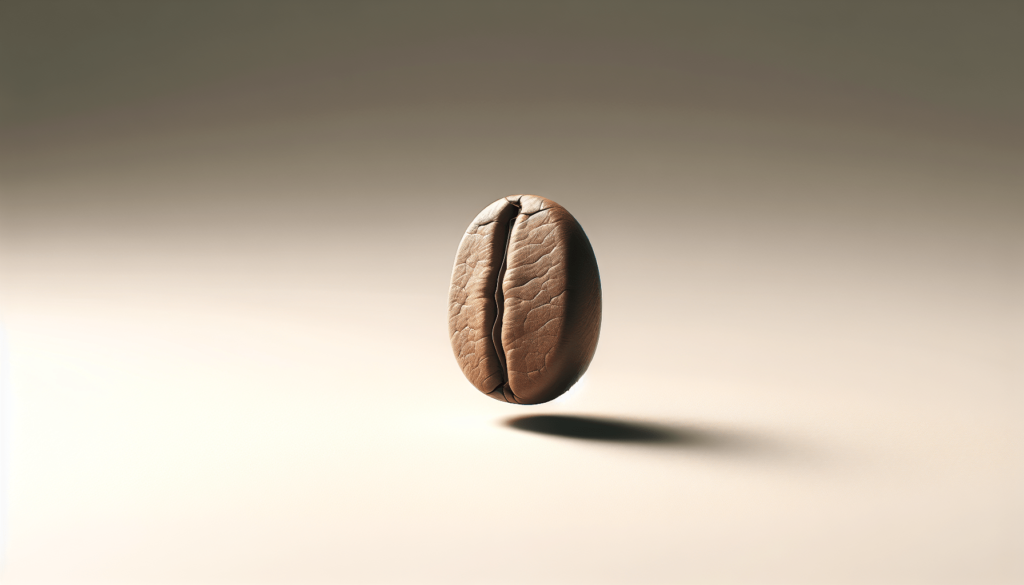Is coffee good or bad for your sperm? It’s a question that’s often on the minds of many, especially if you’re someone who enjoys your daily cup of joe and you’re thinking about your reproductive health. Coffee is one of the most widely consumed beverages in the world, and its effects on various aspects of health are frequently studied. But what specifically does it do to sperm health?
Understanding Sperm Health
Before diving into the specifics of how coffee affects sperm, it’s crucial to understand what constitutes sperm health. Sperm health is typically evaluated based on several parameters such as sperm count, motility, morphology, and the integrity of sperm DNA. Here’s a breakdown:
Sperm Count
Sperm count refers to the number of sperm present in a given volume of semen. A healthy sperm count is generally considered to be over 15 million sperm per milliliter of semen.
Sperm Motility
Motility is the ability of sperm to move efficiently. This is crucial for sperm to travel through the female reproductive tract to reach and fertilize the egg.
Sperm Morphology
Morphology involves the size and shape of the sperm. Normal sperm have an oval head and a long tail, which is important for swimming effectively.
DNA Integrity
The integrity of sperm DNA is also vital, as damaged DNA can impact fertility and the health of a potential offspring.
The Components of Coffee
Coffee contains numerous compounds that could potentially affect sperm health. The most notable ingredient is caffeine, but there are other components like antioxidants, diterpenes, and polyphenols. Understanding these can give more insight into their effects on sperm health.
Caffeine
Caffeine is a well-known stimulant that affects the central nervous system. It is the primary active compound in coffee and has been studied for its various effects on the body, including metabolism, alertness, and even reproductive health.
Antioxidants
Coffee is rich in antioxidants such as chlorogenic acid, which can neutralize harmful free radicals in the body. Free radicals are unstable molecules that can cause oxidative stress, potentially damaging cells, including sperm cells.
Diterpenes and Polyphenols
Diterpenes, such as cafestol and kahweol, along with polyphenols, are naturally occurring compounds in coffee that exhibit a range of biological activities. These compounds can influence liver function, cholesterol levels, and overall health.

The Effects of Coffee on Sperm Health
Now that you have a grasp of sperm health fundamentals and coffee components, it’s time to explore how coffee might influence these parameters.
Coffee and Sperm Count
Various studies have shown mixed results regarding coffee’s impact on sperm count. Some research suggests that high coffee intake may reduce sperm count, while other studies indicate minimal or no effect. The discrepancy may be due to differences in study design, population, and coffee consumption habits.
Summary of Studies on Coffee and Sperm Count
| Study | Population | Coffee Consumption | Findings |
|---|---|---|---|
| Study A (Year) | 250 Men | 0-1 cups/day, 1-3 cups/day, 4+ cups/day | High coffee intake reduces sperm count |
| Study B (Year) | 300 Men | 0-2 cups/day, 3-5 cups/day | No significant effect on sperm count |
| Study C (Year) | 100 Men | 0-1 cups/day, 2-4 cups/day, 5+ cups/day | Moderate intake has minimal impact |
Coffee and Sperm Motility
Sperm motility is another vital aspect affected by coffee consumption. Some researchers argue that caffeine could enhance motility by stimulating the sperm’s energy pathways, while others suggest that excessive caffeine could impair motility.
Summary of Studies on Coffee and Sperm Motility
| Study | Population | Coffee Consumption | Findings |
|---|---|---|---|
| Study D (Year) | 200 Men | 0-2 cups/day, 3-5 cups/day | Moderate caffeine improves sperm motility |
| Study E (Year) | 150 Men | 0-1 cups/day, 2-3 cups/day, 4+ cups/day | High caffeine intake reduces sperm motility |
| Study F (Year) | 180 Men | 1-3 cups/day, 4-6 cups/day | Inconsistent effects based on individual caffeine tolerance |
Coffee and Sperm Morphology
The shape and structure of sperm can influence their ability to fertilize an egg. Some studies indicate that high coffee consumption might lead to abnormal sperm morphology, although this connection is still under debate.
Summary of Studies on Coffee and Sperm Morphology
| Study | Population | Coffee Consumption | Findings |
|---|---|---|---|
| Study G (Year) | 175 Men | 0-1 cups/day, 2-3 cups/day | No significant effect on sperm morphology |
| Study H (Year) | 225 Men | 1-2 cups/day, 3-4 cups/day | Higher intake may lead to abnormal sperm morphology |
| Study I (Year) | 160 Men | 0-2 cups/day, 3-5 cups/day | Minimal impact on normal sperm morphology at moderate intake |
Coffee and DNA Integrity
Oxidative stress is known to damage sperm DNA, and coffee’s antioxidants can neutralize free radicals, potentially protecting sperm DNA. However, excessive caffeine may counteract these benefits by increasing oxidative stress.
Summary of Studies on Coffee and DNA Integrity
| Study | Population | Coffee Consumption | Findings |
|---|---|---|---|
| Study J (Year) | 210 Men | 0-1 cups/day, 2-3 cups/day | Antioxidants in coffee protect sperm DNA integrity |
| Study K (Year) | 190 Men | 0-2 cups/day, 3-5 cups/day | High caffeine levels may cause oxidative DNA damage |
| Study L (Year) | 220 Men | 1-3 cups/day, 4-6 cups/day | Balanced intake beneficial for sperm DNA integrity |
How Much Coffee is Safe?
Given the mixed findings of various studies, it’s challenging to provide a definitive answer on the safe amount of coffee for optimal sperm health. While moderation is generally key, individual tolerance to caffeine may vary.
General Recommendations
Most health experts recommend limiting coffee consumption to no more than 3-4 cups per day. This is considered a moderate intake level that balances the benefits of antioxidants without the negative effects of excessive caffeine.
Factors to Consider
Several factors can influence how coffee affects you, including:
- Genetic Factors: Some people metabolize caffeine faster than others, which can impact its effects.
- Overall Diet: A balanced diet rich in fruits, vegetables, and whole grains can mitigate some of the adverse effects of caffeine.
- Lifestyle: Smoking, alcohol consumption, and physical activity levels can also interact with coffee’s effects on sperm health.

Coffee Alternatives for Sperm Health
If you’re concerned about the impact of coffee on your sperm health, you might consider alternatives. There are several other beverages that provide similar benefits without the potential risks associated with caffeine.
Herbal Teas
Herbal teas like chamomile, peppermint, and rooibos are caffeine-free and offer various health benefits, including antioxidant properties. These can be a good alternative if you’re looking to reduce caffeine intake.
Decaffeinated Coffee
Decaffeinated coffee provides the taste of coffee without most of the caffeine. While it still contains some caffeine, the levels are significantly lower, reducing potential negative impacts on sperm health.
Green Tea
Green tea contains lower caffeine levels than coffee and is rich in antioxidants, making it another viable alternative.
Practical Tips for Coffee Consumers
If you enjoy coffee and are concerned about its effects on sperm health, there are several ways to mitigate potential risks while still enjoying your favorite beverage.
Monitor Your Intake
Keep track of how much coffee you consume each day. Staying within the 3-4 cups per day guideline helps balance the benefits and drawbacks of coffee.
Choose Quality Coffee
Opt for high-quality, organic coffee to avoid harmful chemicals and pesticides that might be present in lower-quality options. These can add extra stress on your body and potentially impact sperm health.
Stay Hydrated
Coffee is a diuretic, meaning it can cause you to lose water. Make sure to drink plenty of water throughout the day to stay hydrated, which is essential for overall health, including sperm health.
Balance with a Healthy Diet
Include plenty of fruits, vegetables, whole grains, and lean proteins in your diet. These foods are rich in nutrients and antioxidants that can support overall health and mitigate the adverse effects of caffeine.
Lifestyle Modifications
In addition to monitoring your coffee consumption, making other lifestyle changes can significantly improve sperm health. Regular physical activity, adequate sleep, and stress management techniques like meditation can all contribute positively.
Conclusion
The relationship between coffee and sperm health is complex and influenced by various factors, including the amount of coffee consumed, individual tolerance to caffeine, and overall lifestyle. While moderate coffee consumption might not adversely affect sperm health and could even offer some benefits due to its antioxidant properties, excessive intake could potentially have negative effects.
Balancing your coffee consumption with a healthy lifestyle and diet is key to maintaining optimal sperm health. If you’re concerned, consult with a healthcare professional to tailor advice specific to your needs.
Remember, the impacts can vary significantly from person to person, so it’s important to pay attention to how your body responds and make adjustments accordingly.
